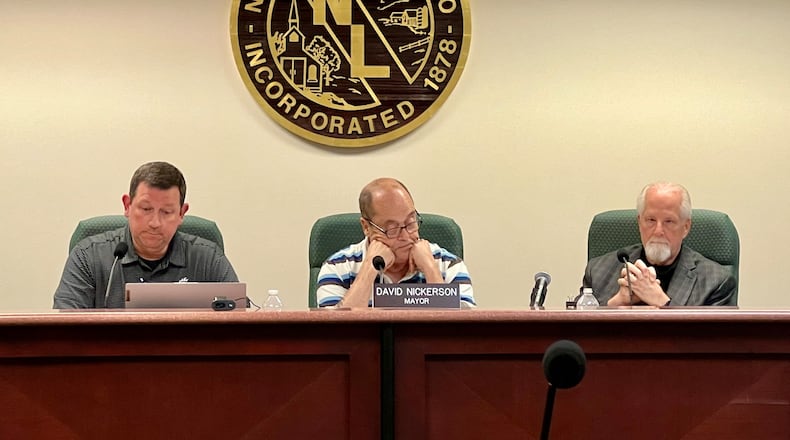Hensley was one of eight total employees terminated in a series of unexpected March council votes. Also ousted were top village officials Chief Financial Officer Phillip Hinson, Service Superintendent Scott Brock, and Village Manager Glena Madden. The village’s contracted Law Director Ron Keener was let go, as well.
McNamee said Thursday that an internal investigation into the village administration remains ongoing but declined to give any updates on the inquiry.
McNamee belittled Hensley’s lawsuit against the village, categorizing its claims as unfounded.
“This complaint is yet another misguided effort of fear and intimidation,” McNamee wrote in an email to this newspaper. “The complaint is completely without merit, and quite frankly, laughable. The village will not make any additional commentary while the litigation is pending.”
Hensley is the second of the fired employees to fight back against their ousting in court. Soon after her firing, Madden filed a writ of quo warranto with the Montgomery County Court of Common Pleas against both Anderson and the municipality of New Lebanon. In the suit, Madden calls for her reinstatement to the position of village manager and the ousting of Anderson. Madden’s case against the village continues in court, with the collection of evidence and depositions of witnesses ongoing.
In his complaint, Hensley makes several accusations, including that the village committed a breach of contract, deprivation of rights, defamation, tortious interference with employment relationship. and promissory estoppel.
The village violated Hensley’s contract, he contends, by failing to pay Hensley the remainder of his base salary or accrued leaves following his termination, as stipulated within his employment agreement.
Hensley’s five-year agreement began Jan. 1 and included an annual salary of $84,972. He asserts the village owes him more than $100,000 in damages.
The complaint claims Hensley was deprived of his due process rights when the village failed to provide him with a pretermination Loudermill hearing.
These hearings, which are afforded to public employees prior to removal, provide an employee with a chance to officially respond to any claims against them that may have led to the termination.
On March 19, McNamee gave a presentation during a village council meeting highlighting “preliminary results” of his investigation into the village, which was launched just prior to the March firings.
It was during this presentation that McNamee, according to Hensley’s filing, “falsely alleged that (Hensley) participated in an unlawful executive session,” and further that he unlawfully arrested Farley, a co-defendant in the complaint.
Court records show Farley was charged in May 2023 with disrupting a public meeting, among other charges. These charges were ultimately dismissed in May of this year.
These claims were forwarded to the Ohio Unemployment Compensation Review Commission, the filing continues, resulting in an initial denial of unemployment benefits to Hensley.
Following an appeal, the commission reversed this decision.
“(The commission) ultimately found that there was no evidence (Hensley) participated in an unlawful executive session,” the filing asserts.
In support of the tortious interference claim, Hensley’s filing asserts that the defendants in the case used different tactics to intentionally interfere with the employer-employee relationship by conspiring to terminate Hensley in violation of his employment agreement.
Lastly, the complaint opines the village of New Lebanon failed to “uphold its representations and promises” to Hensley by terminating him without cause and without providing the bargained-for compensation owed following the termination.
About the Author


